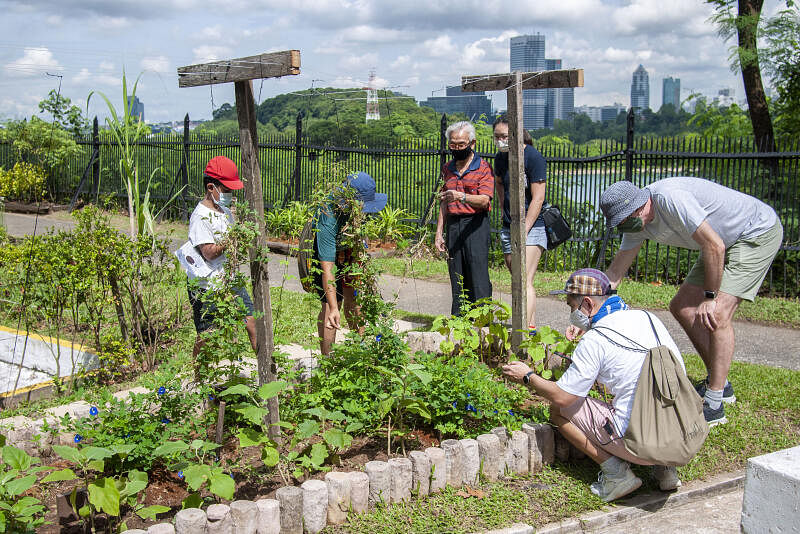Urban farms: Learn about wartime foods on Sentosa
Sign up now: Get ST's newsletters delivered to your inbox

Participants taking part in the Wartime Food and Sustainability workshop.
PHOTO: EDIBLE GARDEN CITY
Follow topic:
SINGAPORE - For those who have lived through the wartime years, crops such as sweet potato and tapioca can still conjure up memories of scarcity and hunger.
But now, these tubers could play a small part in realising Singapore's food-security goals.
That was what urban farming social enterprise Edible Garden City wanted to highlight in its Wartime Food and Sustainability workshop, held in collaboration with Sentosa Development Corporation (SDC).
During the workshop at Fort Siloso last month, participants revisited the dark days of the Japanese Occupation at the Surrender Chambers and learnt how people adapted their food sources.
It was not just a history lesson. Guests were also brought back to the present as they found out crops such as sweet potatoes and tapioca can grow easily in Singapore's tropical climate.
They also got their hands dirty learning to grow sweet potato leaves from cuttings and tapioca tubers from stems.
"We wanted to highlight these plants as regionally native ones that people can consider growing and incorporating in their diet," says Ms Sarah Rodriguez, head of marketing at Edible Garden City.
For instance, sweet potatoes can be baked, mashed or served as fries, while their leaves make a tasty stir-fry. Tapioca, meanwhile, can be sliced and made into cassava chips or baked. Their leaves can also be stir-fried.
Ms Rodriguez says for many people, consumption habits are shaped by Western recipes and imported produce in supermarkets, such as kale.
But locally grown produce is fresher, more nutritious and has a lower carbon footprint, points out urban farming educator Eunice Ong. It also supports Singapore's goal of producing 30 per cent of food locally by 2030.
The workshop, attended mostly by families, was originally slated for April, but had to be postponed because of the coronavirus pandemic. Twenty-eight people attended three sessions and organisers have plans for future collaborations.
Ms Ong says: "Besides the connection to sustainable starches, we wanted to highlight how people can be creative and resourceful in times of adversity, and that the human spirit can triumph over obstacles."

